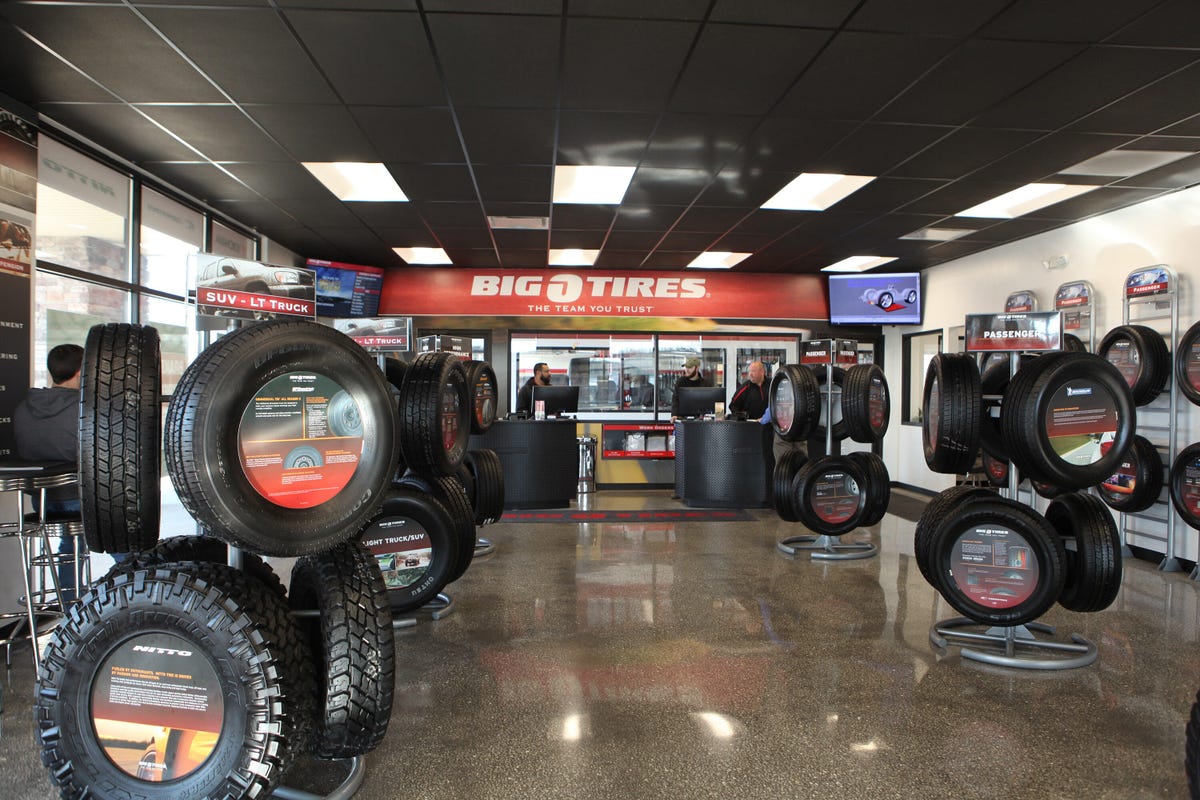Quality Tire Shop Morris: Your Best Location for Tire Demands
Quality Tire Shop Morris: Your Best Location for Tire Demands
Blog Article
Tire Service: Understanding Tire Pressure Tracking Solutions
Recognizing Tire Stress Tracking Solutions (TPMS) is a critical aspect of preserving optimal car efficiency and safety and security on the roadway. With improvements in automotive modern technology, TPMS has come to be a conventional attribute in modern vehicles, giving real-time information on tire pressure degrees. Diving much deeper into the details of TPMS, one can discover the numerous parts that compose this system and the relevance of each in guaranteeing exact surveillance. From direct to indirect TPMS systems, the landscape of tire pressure surveillance varies, each with its one-of-a-kind set of factors to consider and benefits. Keep tuned to unravel the complexities of TPMS, from upkeep tips to the undeniable benefits of keeping your tires effectively pumped up. discount tires morris il.

Value of TPMS
The importance of Tire Stress Tracking Equipments (TPMS) exists in their capacity to improve vehicle safety and performance via real-time surveillance of tire stress levels. Maintaining the right tire pressure is vital for ensuring optimum handling, stopping, and overall security of a lorry. TPMS offers chauffeurs with instant feedback on any overinflated or underinflated tires, permitting timely modifications to be made.
Elements of TPMS
Comprising numerous important components, a Tire Pressure Monitoring System (TPMS) functions as an innovative safety and security attribute in modern-day lorries. The major components of a TPMS consist of sensors, a control component, and a warning indication. Sensing units are commonly located in the tire shutoff stem or affixed to the wheel assembly, where they measure tire pressure and transfer data to the control module. The control module procedures this information and activates a caution if it finds considerably reduced pressure in any one of the tires. The caution indicator, typically an icon on the dashboard, notifies the motorist to examine the afflicted tire or tires. Some progressed TPMS versions additionally show the actual tire pressure readings for each tire, offering vehicle drivers with real-time information to make sure ideal tire performance and safety and security. By checking tire stress continually, TPMS assists stop accidents, minimizes tire wear, and boosts gas effectiveness, making it an essential part for automobile safety and security and performance.
Kinds Of TPMS

On the various other hand, indirect TPMS depends on the vehicle's wheel speed sensors to keep an eye he said on tire stress. This system finds underinflation by comparing the rotational rates of the wheels. Indirect TPMS is less expensive than straight TPMS, as it uses existing sensors within the automobile.
While straight TPMS supplies more accurate analyses, indirect TPMS is less complex in design and normally needs much less maintenance. Both systems have their limitations and advantages, and the selection between them typically depends on variables such as price, automobile make, and personal choice. Recognizing the differences in between these 2 kinds of TPMS can aid car owners make informed choices regarding tire upkeep and safety and security.
TPMS Maintenance Tips
Effective maintenance of TPMS is crucial for guaranteeing ideal efficiency and safety and security of your vehicle. Regularly examining the TPMS sensors for any kind of damage or corrosion is crucial. Make certain that the sensing units are complimentary and tidy from particles that can interfere with their performance. Furthermore, it is advisable to examine the sensor batteries regularly and replace them as needed to assure exact readings. Conduct routine examine the tire pressure degrees and compare them with the TPMS readings to ensure they are regular. Rectify the system adhering to the manufacturer's guidelines if there are any kind of discrepancies. Furthermore, throughout tire turning or replacement, make certain that the TPMS components are taken care of thoroughly to avoid any prospective damages. Lastly, if the TPMS advising light brightens on the dashboard, deal with the problem quickly by inspecting the tire stress and the general system for any kind of mistakes. By sticking to these upkeep tips, you can prolong the life-span of your TPMS and boost the security of your driving experience.
Advantages of Correct Tire Pressure
Maintaining proper tire stress, as highlighted in TPMS Find Out More Upkeep Tips, is vital for gaining the many advantages related to optimum tire stress degrees. Among the key benefits of preserving the appropriate tire pressure is improved gas efficiency. When tires are correctly inflated, there is less rolling resistance, resulting in far better fuel economic climate. Additionally, correct tire stress makes sure also tire wear, extending the life-span of the tires and advertising safer driving problems. With the right tire stress, automobiles likewise have much better handling and grip, particularly in unfavorable climate condition. This can enhance general driving efficiency and security for the motorist and passengers. Maintaining ideal tire pressure can contribute to a smoother and extra comfy adventure by minimizing vibrations and noise caused by underinflated tires. Finally, the advantages of appropriate tire pressure exceed simply tire durability; they include boosted gas performance, improved security, much better vehicle efficiency, and overall driving comfort.
Final Thought
In verdict, understanding tire stress surveillance systems (TPMS) is important for keeping ideal tire stress and guaranteeing vehicle safety and security. By acknowledging the value of TPMS, recognizing with its elements, knowing the different kinds readily available, adhering to proper upkeep tips, and realizing the advantages of keeping appropriate tire pressure, chauffeurs can boost their driving experience and extend the life-span of their tires. Correct tire stress is key to risk-free and reliable car operation.

Report this page